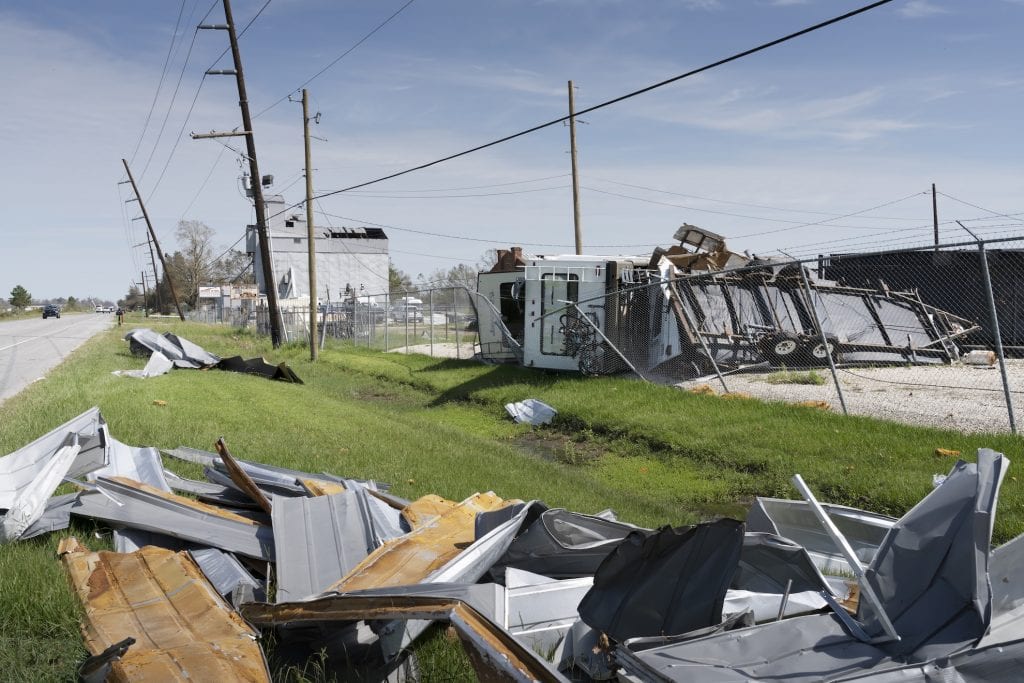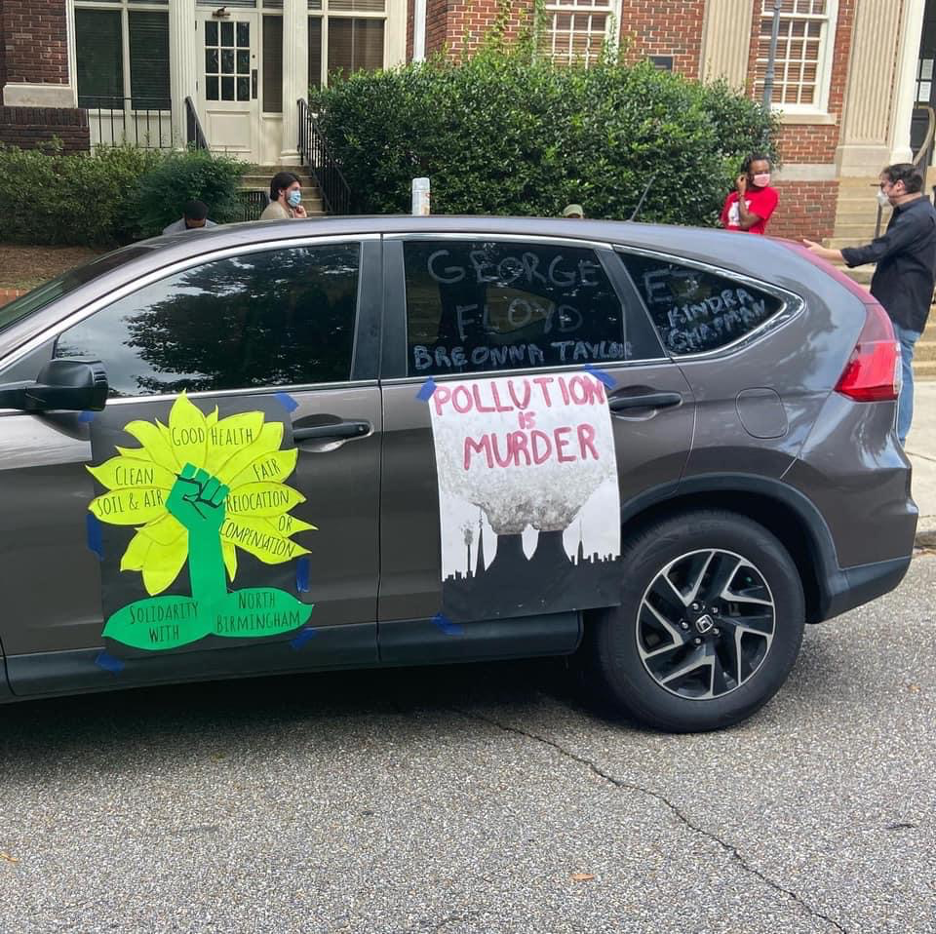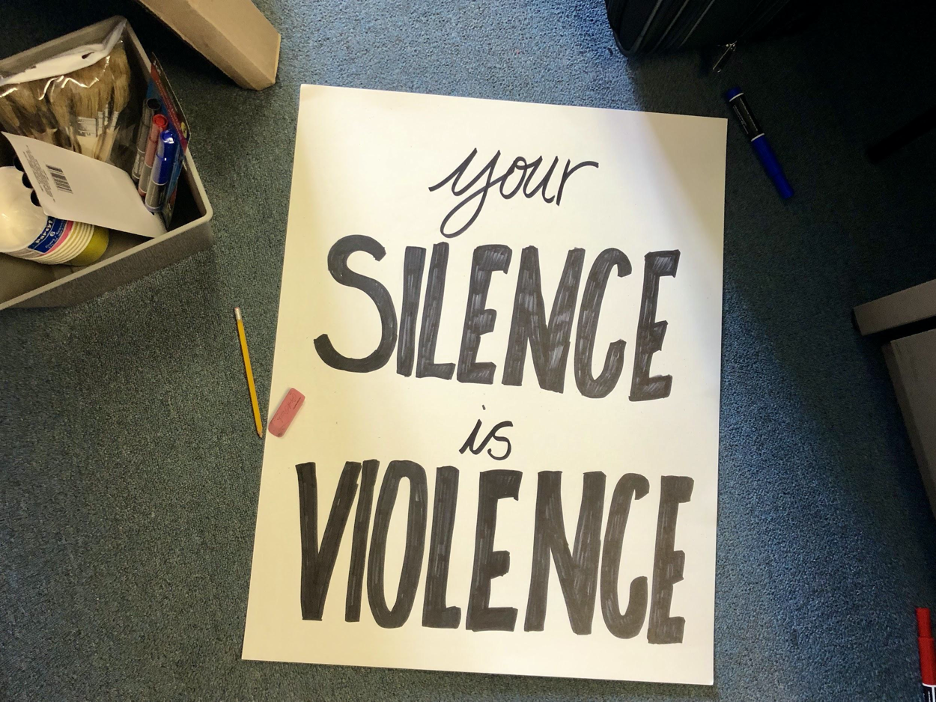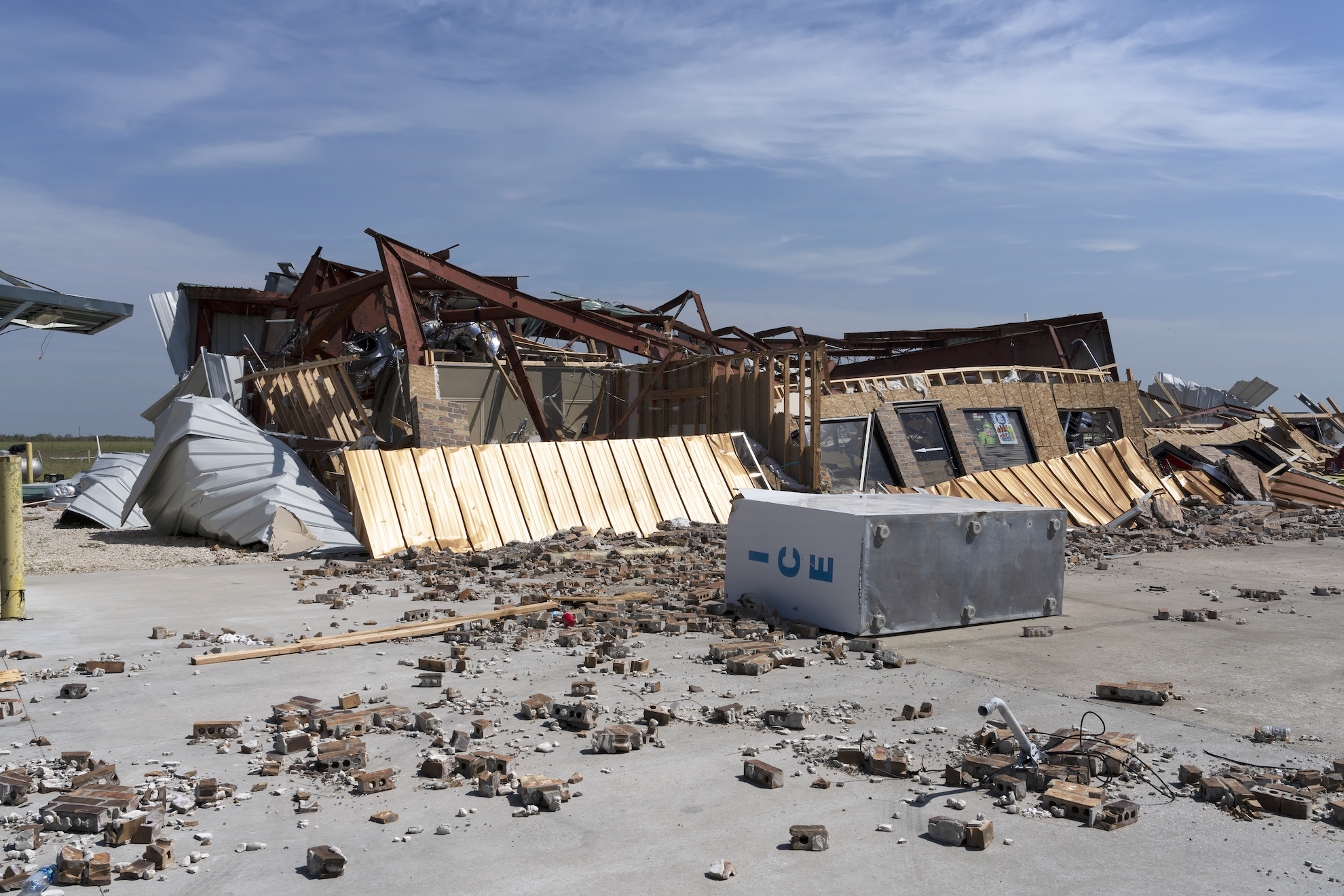Our Brains, Air Pollution and Hurricanes
After a morning of protesting Governor Ivey’s inaction on the contaminated 35th Ave Site in North Birmingham, we sped down I-65 towards home. As we drove, we talked about how well the protest had gone and wondered if our representatives would get it, how could they not in the first place? At the same time, Hurricane Laura, estimated to be the most severe Gulf storm since Katrina, was bearing down on Louisiana. “Climate change is terrible,” we said, knowing that as ocean water gets warmer, it will incubate stronger and stronger storms. If only people would start taking climate change more seriously; why does it have to take a catastrophe for us to realize that our lifestyles are not justifiable anymore? It wasn’t until then that I felt my foot on the gas pedal, and as the weight of the statement settled in, my hands gripped the steering wheel of the SUV a little tighter. “Yeah, climate change is terrible.”

Lake Charles, Louisiana. USA – September 6, 2020: Hurricane Laura. Destruction from strong winds. Upside down RV and a pile of rubbish by the road
It’s easy for us to call hurricanes emergencies. We are good at sending the National Guard, raising money in our churches, keeping up with the news, and when we see images of shredded houses and devastated families, our hearts actually break. We can grasp that this event had real costs for real people. But do we actually think about climate change as an emergency in the same way? Was my heart breaking for all the drives I took between my home in Virginia to my college in Chicago? All my Amazon Prime packages? All the bananas I ate from Colombia? All the time I spend on my laptop even now? Maybe a little, but no, it’s hard for me to always think about my daily life in terms of the big scheme of things, even though I am studying Environmental Science at college!
Considering our history, I think that that makes a lot of sense. Our ancestors spent most of their time worrying about where their next meal was coming from. Planning for a meal in the next 100 years, simply wasn’t on the table. But frankly, in our time, our survival may well depend on that ability. Living as if climate change were a real emergency, and demanding policy changes that will protect ourselves not just tomorrow but in 100 years, is the psychological challenge of our era.

In the same way, I think we also have to call the contamination of the 35th Ave Superfund Site a real emergency. It’s hard to imagine the slow damage inside lungs by invisible pollutant particles, let alone wrap my mind around the magnitude of over 100 years of industry in North Birmingham when I am only 22. What makes it harder is that because I don’t live there, I don’t see these costs the way I see images of a hurricane-torn Louisiana. I promise you Governor Ivey hasn’t seen it, and you may not have either. But the residents of Harriman Park, Collegeville and Fairmont are paying the real costs of poor pollution enforcement and political corruption right now.
We need to rise to the challenge of our time, knowing the limits of our minds, to do everything we can to help ourselves grasp the real costs of inaction. We need to start calling climate change, and the 35th Ave contamination, emergencies so we can start acting like they are. Our survival, together, depends on it.


Erin Rhodes
Intern, HNGR
Erin has moved to Birmingham for the semester to volunteer with Gasp as an Environmental Justice Intern through Wheaton College’s Human Needs and Global Resources (HNGR) program. You can read more about Erin here.


